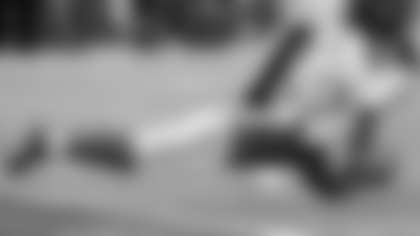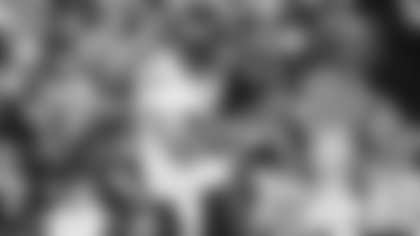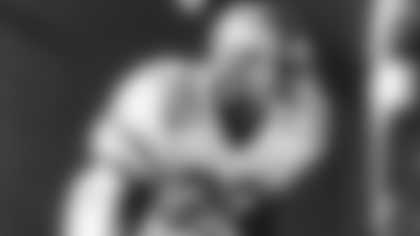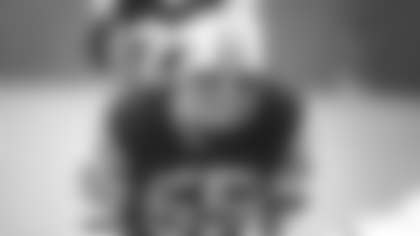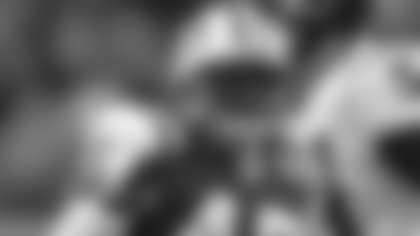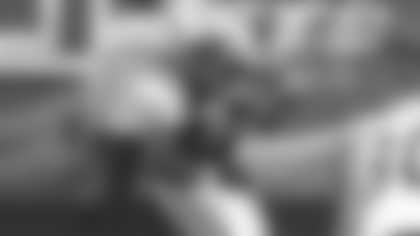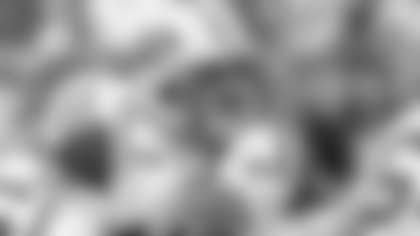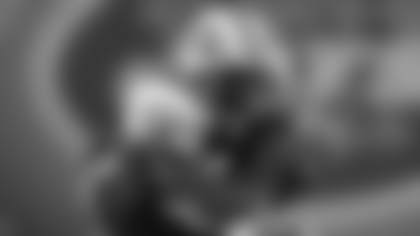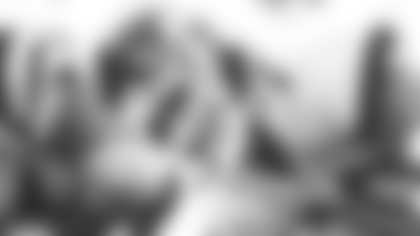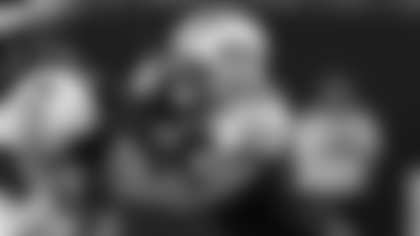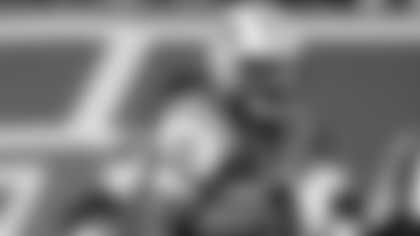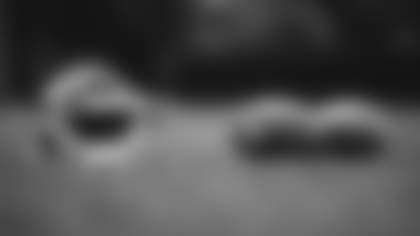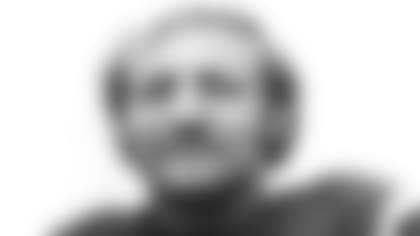
It's football. He enjoyed playing it. And because of the game, H.J. "Rocky" Turner III would receive a scholarship to the University of Tennessee at Chattanooga, where he'd earn bachelor's degrees in biology and chemistry. He didn't expect to be, or even thought about, playing at the next level until the wide receiver was chosen by the Jets in the 1972 NFL Draft.
"I was in my college parasitology lab doing research when the draft happened," Turner said. "It was not something that I planned to do. I was told that I might get the opportunity, and I had some other plans. I always had planned to go to the veterinarian school, actually. Or I was going to go to Alaska and homestead.
"That's what I really wanted to do. I had a friend that was on the football team that wanted to do it too. And I said, 'Hey, let's do that if we don't have something else going on.' Well, then I ended up getting married instead, which changed all my homestead plans. So I said, 'Since I got drafted, I guess I'll go give it a try."
With a new bride and plans to explore the last frontier of Alaska on hold, Turner set his sights on experiencing something new that was closer to his hometown of Augusta, GA.
"When I showed up to training camp, I had an old leather suitcase that my daddy had, that had busted latches and tape around it to hold it together, and a paper grocery bag. That's what my stuff was in," Turner laughed. "I got off the train and got into Hofstra and I looked like country coming to town, for sure."
The young country gentleman didn't exactly come across anything that would have been mistaken for southern hospitality when he joined the other players in New York.
"I had one guy that I kind of knew of before I got there, and that was Don Maynard. But I knew Vernon Studdard, who was a wide receiver also. He played at Ole Miss and I knew him through other friends. And Vernon wasn't the kind of guy that was going to help anybody out. He was more likely to get you in trouble," Turner laughed.
"It was a little bit different in the pros than it was in college. In college, it's all kind of team oriented. When you're in the pros, unless you're one of the very top teams, it's more everybody's worried about themselves and keeping a job.
"And so all during training camp, they just spent the whole time putting people on waivers to see who would clear. If you cleared, they put you on the taxi squad. If you didn't clear, they would pull you back and try to put you on the taxi squad later. As we got close to the end of camp, I was one of those guys. And at the last cut, they managed to get me through and put me on the taxi squad."
A spot on the active roster opened up after veteran running back Matt Snell suffered a career-ending injury when he ruptured his spleen during New York's 1972 Week 4 game against Miami at Shea Stadium. Turner would be activated and begin to contribute on special teams.
"I was excited," Turner said. "I can tell you; I was great at special teams. I caught punts and kickoffs, and I also was one of the leading tacklers. So I had no fear of special teams. And I played everything.
"That's why (Head Coach) Weeb (Ewbank) liked me. He even asked me to play backup running back against the Oakland Raiders on Monday night (later that season). I told him, 'Weeb, I'll do just about anything. But that's one thing I'm not going to do. I don't want to be a fool on Monday Night Football and try to be a running back.'
"He just grinned and said, 'Okay, I understand.' And so that was kind of my career, special teams and in a backup role as a wide receiver or a defensive back."
A defensive back?!?
"I never did it before and nobody taught me anything," Turner said. "It was kind of funny, Earlie Thomas was a friend of mine and he was a defensive back. He would tell me something if I asked him a question. But nobody volunteered to teach you anything back then. Most of the guys were trying to make the team and didn't want to help anybody beat them out. So it was kind of one of those things.
"But I really enjoyed being there. I loved living out on (Long Island's) Point Lookout. The people were very nice and friendly, and I really had a good time. We carpooled in and all that was fun. And I enjoyed traveling to the different stadiums and cities and seeing that. It was almost like a sightseeing tour for me."
Turner's tour lasted two seasons before he was ready to move on to his post-playing career.
"When Weeb retired and they hired Charley Winner (in 1974), the guys that came in with Charley Winner, I really didn't enjoy that," Turner said. "I told them to just put me on waivers because I didn't seem to fit in with these guys.
"At the time, I had talked to our punter, Steve O'Neal. He was in dental school at Tennessee while he was playing. That gave me the idea. It's just something that after thinking long and hard, I decided that would be the way I would go. But I was told not to apply because I wouldn't get in.
"Well, I applied (to the University of Tennessee Center for Health Services) and got in the first time. I went through dental school, and then went through two years of specialty training (and earned a doctorate of dental surgery). I'm a pediatric specialist and started (Pediatric Dentistry of Spartanburg & Gaffney) in '80, and so I've been doing it for 42 years.
"I'm doing something that I really am good at, and it's not easy. But it helps a lot of people. And my youngest son, (Jensen), who's been in practice with me, actually bought me out about a year ago. So I'm working for him until I retire this year. I haven't yet, but I'm supposed to."
When or if Turner does retire, he has plans to revisit his desire to homestead. Now, however, instead of in Alaska, the father of four – Jacqueline, Hart, and Jensen; and grandfather of nine – will be doing so in the Piedmont area of South Carolina.
"I have a great wife, Janet, and a little farm. I don't have any animals yet, but I plant things and have a pond that we fish in with the grandkids," Turner said. "And I have a boat and do offshore fishing in the ocean. So I'm a hunter, fisherman, outdoors person. And I'm getting older, so I won't do it that much longer. But I'm going to try to raise my own livestock around the house and be sort of self-sufficient."



